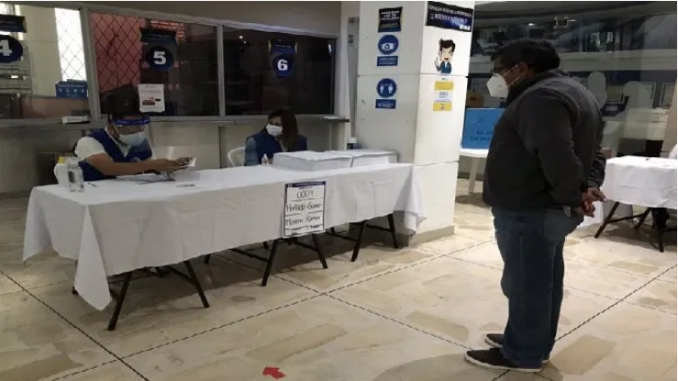
The National Electoral Council (CNE) will evaluate the pilot biosafety plan that was tested yesterday in 14 provinces of the country.
The event took place during the election of the Board of Directors of the Cabo Nicanor Quiroz Land Force Volunteers Club.
A total of 18.153 volunteers were authorized to vote. In the Electoral Delegation of Pichincha the Voting Reception Boards (JRV) were placed and the members were given a biosafety kit with masks, a face shield, alcohol and disinfectant cloths.
At the time of approaching the Board, the voter showed his identification card to the member equipped with the facial screen and removed his mask for a moment so that it could be visually verified that it appears in the electoral roll.
Then the volunteers received the ballots. One of the members of the JRV disinfected the screen every time 20 citizens had voted.
Paulina Peña, director of the Delegation, explained that the Emergency Operations Committee (COE) authorized the application of the plan.
The objective of this plan was to learn from this experience to fine-tune the measures that will be applied in the 2021 elections.
During the exercise, the way in which the voting tables will be placed was simulated.
For the elections, open spaces such as courts will be prioritized, to avoid crowds.
Outside the Delegation there were lines and distancing was not respected, so Peña said that she will coordinate with the municipalities and the National Police to control public space.
She also said that in coordination with the National COE, adequate biosecurity measures will be adopted.

Be the first to comment